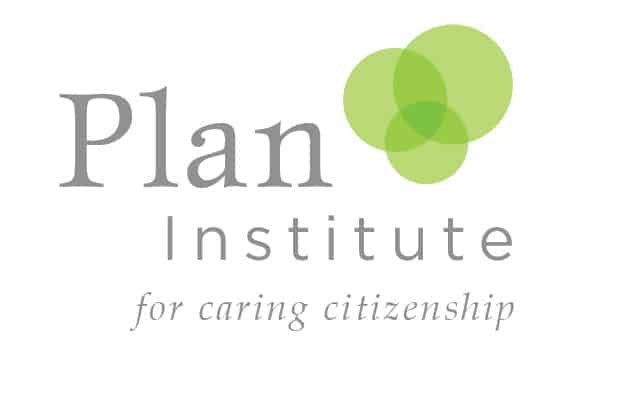Since September 1, 2016 the Access RDSP partnership between Disability Alliance BC (DABC), BC Aboriginal Network on Disability Society (BCANDS), and Plan Institute, with support from the Vancouver Foundation, has been providing free support on all things related to the Registered Disability Savings Plan (RDSP) and Disability Tax Credit (DTC) throughout British Columbia. Our one-stop-shop provides a helpline, information sessions, one-to-one support, Indigenous outreach, a grant for individuals on low income, and resources for medical professionals, all free-of charge.
The project was established in order to spread awareness of the Registered Disability Savings Plan (RDSP) to people with disabilities and their families within BC. Due to the lack of uptake since its creation in 2008, Plan Institute has been working with other stakeholders and the federal and provincial governments to identify and remove the barriers that people face when opening an RDSP. We have identified that the lack of uptake is primarily an issue of awareness, misconceptions, and people finding the application process overwhelming. Statistics Canada reports that as of 2015, only 24.3% of DTC-eligible Canadians have opened a plan.
The RDSP is an incredible tool that can provide our most vulnerable citizens with access to free government money and savings that will help to secure their financial future. Even with no personal contributions, individuals can access up to $20,000 in government bonds, and if any money is contributed, up to $70,000 in matching grants, depending on one’s income.
To date Access RDSP has provided direct one-to-one support to 1488 individuals. The partnership has reached 1665 people through 59 RDSP and DTC information sessions across the province. Together, we have made 225 referrals amongst the partner organizations, to directly connect people with the supports they need to open an RDSP.
Working with the Indigenous Community
Due to the high rate of disabilities among Indigenous communities (it is estimated at twice that of the non-indigenous rate), it is crucial that more support and information be provided through outreach and services. Located on Vancouver Island, BCANDS serves BC’s 200 First Nation communities for disability and health-related services. As part of Access RDSP, BCANDS is providing eligible individuals and families a variety of services to help them access the RDSP, including assistance with income tax filing, DTC applications, and setting up social insurance numbers.
“Indigenous people with disabilities represent a marginalized population within a marginalized population, so their needs are complex.” Says Evelyn Huntjens, RDSP Navigator at BCANDS. “Many Indigenous people are surviving from one day to the next, so planning for the future is not a priority. Encouraging them to save for the future and open an RDSP can seem unattainable when there is no money at the end of the day.”
BCANDS has already reached 471 individuals with their services, either to open an RDSP, apply for the DTC, or provide them with information they need to make decisions. “Hearing about these services and programs is great, but having help navigating through the process is essential for making it through.” says Meagan Martin, a BCANDS client.
Applying for the Disability Tax Credit
A major hurdle for people opening an RDSP is obtaining the Disability Tax Credit (DTC), which is an eligibility requirement.
The DTC form is often confusing and difficult for people and their healthcare professional to understand. Many don’t know how much information should be included and what wording is best to use. As a result, some people who may otherwise be eligible are denied.
“Getting help from a Disability Tax Credit advocate can reduce the stress and headache of the process. The RDSP is well worth your time,” says Sam Turcot, Director, Advocacy Access Program at DABC.
Disability Alliance BC has a dedicated team of caring individuals whose job it is to provide one-to-one support for people who need help applying for the DTC and support with the RDSP. So far, through the Access RDSP initiative, DABC has reached over 2,300 people and have provided one-to-one support to 312 clients.
Providing RDSP Support and the Endowment 150 Grant
The idea for the RDSP was born out of Plan Institute’s sister organization, Planned Lifetime Advocacy Network (PLAN). PLAN families and founding members proposed, researched and campaigned for the RDSP until its creation in 2008 with the help of the late Minister Jim Flaherty. Today, Plan Institute continues to spread awareness, provide support and information, and works as part of an RDSP Action Group to determine areas for improvement and recommend changes.
Through the Access RDSP partnership, Plan Institute provides a toll-free helpline, a dedicated website (www.rdsp.com), free information sessions, and $150 grant to help children and those on low-incomes jump start their savings in an RDSP.
“By collaborating with like minded organizations such as BCANDS and DABC we can accomplish more and reach more people. We are stronger together and know that change is based in community partnerships like these”, says Stephanie Debisschop, Director of Plan Insitute.
So far Plan Institute has reached 2,252 people and provided one-to-one support to 858 of these individuals through the Disability Planning Helpline. 3, 870 km have been covered by the team providing RDSP information sessions in rural and urban centres.
Our first year of Access RDSP has shown us how essential this service is to British Columbians. We have made great strides towards addressing the gaps in service and knowledge needed to improve the uptake of the RDSP and we are excited to continue this work and build on our successful partnership in the years to come.
To find out more about Access RDSP and the free supports and services provided, go to rdsp.com/supports-and-services

